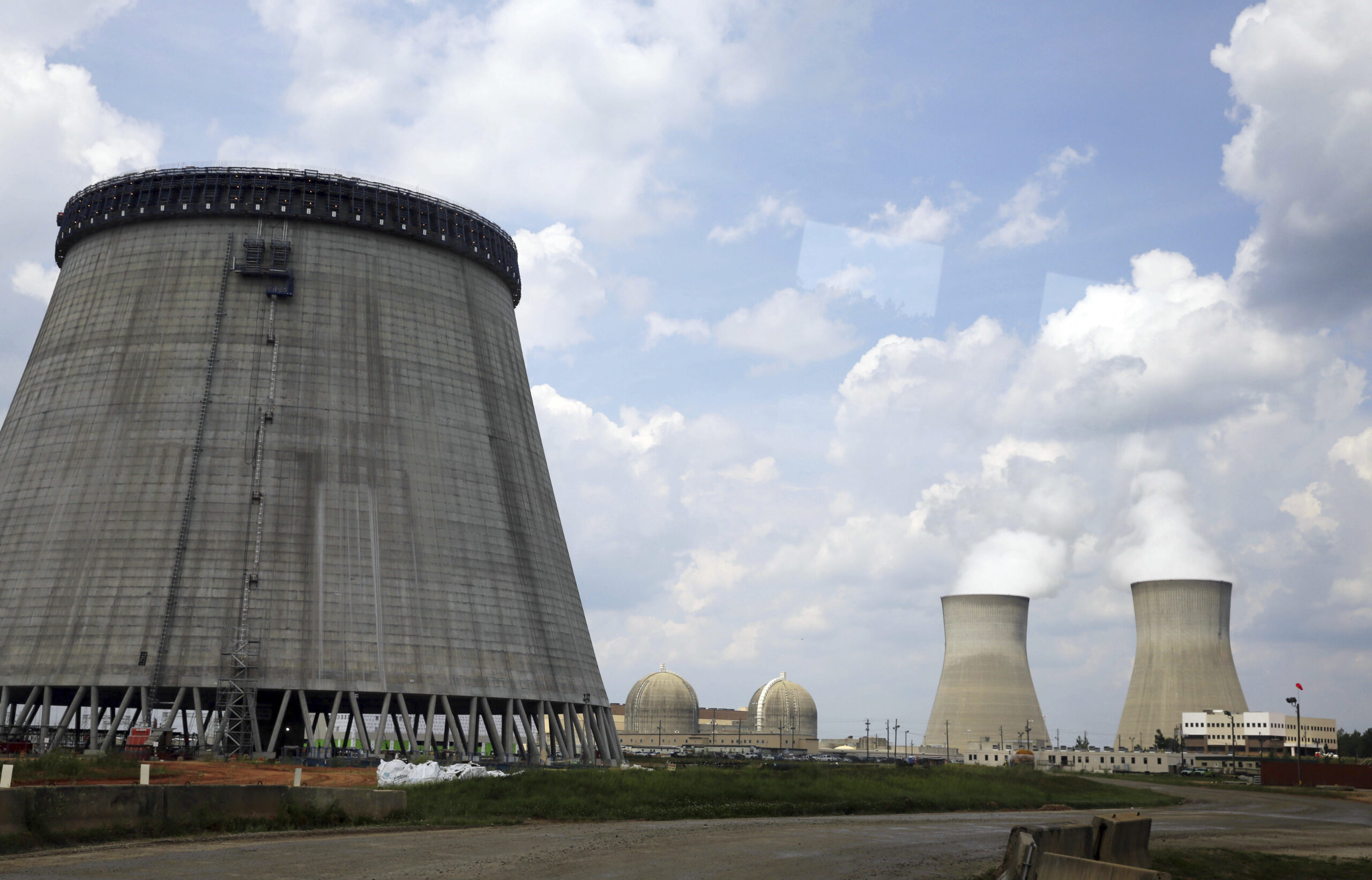Appeals Court Hears Argument On Nuclear Plant Decision

Georgia Power is expanding Plant Vogtle, a nuclear power plant near Waynesboro, Ga. It’s the only nuclear power plant under construction in the country.
John Bazemore / Associated Press
The Georgia Court of Appeals heard arguments Tuesday about whether a state decision to continue expanding Plant Vogtle broke any regulatory rules. A Fulton County Superior Court judge dismissed the case on technical grounds in December, and appellants are requesting reconsideration of that dismissal.
Georgia Power is expanding Plant Vogtle, a nuclear power plant near Waynesboro, Ga. It’s the only nuclear power plant under construction in the country.
The Public Service Commission, which regulates Georgia Power, has to review Plant Vogtle’s ongoing costs during semiannual Vogtle Construction Monitoring (VCM) reports. Back in 2017, during VCM 17 the Commission had a big decision to make: should Georgia Power continue construction, even though its contractor was going bankrupt from building it?
The commission decided yes, the higher costs and longer schedule were acceptable enough for the project to continue.
The advocacy groups in court, including Georgia Watch and Georgia Interfaith Power and Light are trying to challenge the decision, saying it was more than just checking expenses.
“This didn’t limit itself to simply approving expenditures that had accrued and been spent,” John Salter, the advocates’ lawyer, said.
He argued it was an existential and final decision about the future of the plant. And as such, it should be subject to “judicial review,” meaning, people like his clients should be able to challenge it.
The Public Service Commissioners, during the VCM process, aren’t tasked with deciding if expenses were “prudent” until after the plant is complete. They only evaluate if they’re “reasonable” in real time. It’s after the plant’s completion, during that “prudency review” process that people like advocates are allowed to challenge expenses.
“And that’s their [Georgia Power’s] argument: ‘Wait until we build it.’ But if you wait ‘til you build it, you can’t go back and say, was it right to continue? It’s moot at that point,” Salter said. “They’re taking away one of the powerful arguments to hold the company accountable, which is whether or not the additional expenses are reasonable. And that matters. Because it shifts the burden of proof.”
The state and Georgia Power disagreed. They said the VCM 17 decision was not a final decision, and so the Superior Court has no grounds to evaluate it. It’s not final, they said, because people can still challenge the decision adequately on the back end, during prudency review.
Tom Reilly argued on behalf of Georgia Power.
“It’s not a question of whether they can seek judicial review,” he said. “It’s a question of when. And many of the issues about which they complain have been decided earlier in this course of the ongoing VCM review, many of them are yet to be determined in the later course of this ongoing VCM review.”
Now the court will decide by the end of the year if the advocates have the grounds to challenge that 2017 decision.








